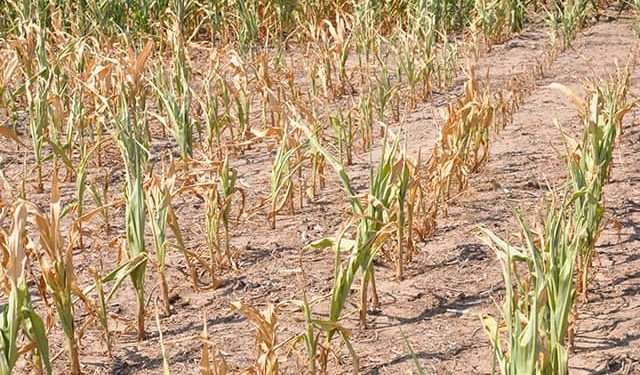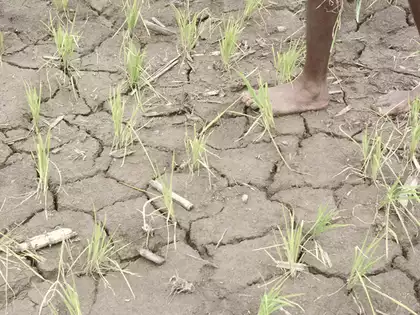The Peasant Farmers Association of Ghana (PFAG) in the Daffiam-Bussie-Issah (DBI) District is making an urgent appeal to the government for the provision of small-scale irrigation schemes to support agricultural production in northern Ghana.
This call comes in response to a prolonged drought that has severely disrupted the 2024/2025 cropping season, leaving thousands of farmers in a vulnerable state.
Agriculture is widely recognized as the backbone of Ghana’s economy, particularly in the northern regions where a majority of the population relies on farming for their livelihoods. However, the recent drought, which has lasted for over a month, has put immense pressure on the farming communities in the DBI District. The PFAG, through a statement signed by the district’s executive members, led by Mr. Lawie Bonzo Vincent, highlighted the critical need for government intervention.
“If agriculture is to remain the backbone of our economy, neglecting irrigation infrastructure poses a significant threat to the district’s and region’s food security,” the statement warned. The absence of adequate irrigation facilities has exacerbated the impact of the drought, leaving over 800 farmers in the district facing the loss of their crops, income, and the livelihoods of more than 8,000 household members.
The Scale of the Crisis
The PFAG’s members in the DBI District collectively manage between 4,000 and 6,000 acres of farmland, with individual farmers cultivating plots ranging from one to over 50 acres. T
he primary crops produced in this region include maize, millet, and groundnuts, with an estimated production capacity of about 2,500 Metric Tons (MT) of crops per season. The ongoing drought has put this production at risk, threatening not only the immediate food supply but also the long-term sustainability of agriculture in the region.
To address these challenges, the PFAG is appealing to the central government, the Regional Coordinating Council, and the District Authorities to prioritize the establishment of small-scale, farmer-led irrigation schemes.

Such infrastructure would enable farmers to sustain food production despite the adverse weather conditions. Additionally, the association is calling for the provision of mechanization services, particularly for female farmers, to help them quickly prepare their fields and mitigate the impact of the drought.
“We require more education on the impacts of climate change and effective farming practices. Understanding planting times, seed selection, and agronomic practices will help us adapt and maximize crop yields,” the statement added. This plea underscores the need for comprehensive support that goes beyond irrigation to include knowledge transfer and capacity building for farmers.
Addressing Broader Agricultural Challenges
The PFAG’s appeal also highlights other systemic issues that hinder the productivity and profitability of smallholder farmers in the region. The association is urging the government to implement effective policies that ensure fair market practices, including standardized weighing and pricing for their produce. These measures are crucial for protecting farmers from exploitation and ensuring they receive fair compensation for their hard work.
In addition to these immediate needs, the PFAG is advocating for alternative livelihood programs to diversify income sources for farming households. Suggested initiatives include shea processing, soap making, and livestock rearing. These programs would not only provide supplementary income but also build resilience against future climate-related shocks.
The drought in northern Ghana, particularly in the Upper West Region, has had devastating effects on the agricultural sector. Several farms have been destroyed, with investments running into millions of Ghana Cedis at risk of being lost. The financial and economic implications of this crisis are severe, with the potential to exacerbate poverty and food insecurity in the region.
In response to the growing crisis, President Nana Addo Dankwa Akufo-Addo has indicated that the government will soon announce interventions to counter the impact of the prolonged drought. While details of these interventions are yet to be disclosed, the PFAG’s appeal underscores the urgency of the situation and the need for immediate and sustained action to support farmers in northern Ghana.
READ ALSO: GSE Market Indices Unchanged Despite 49% Drop in Turnover




















